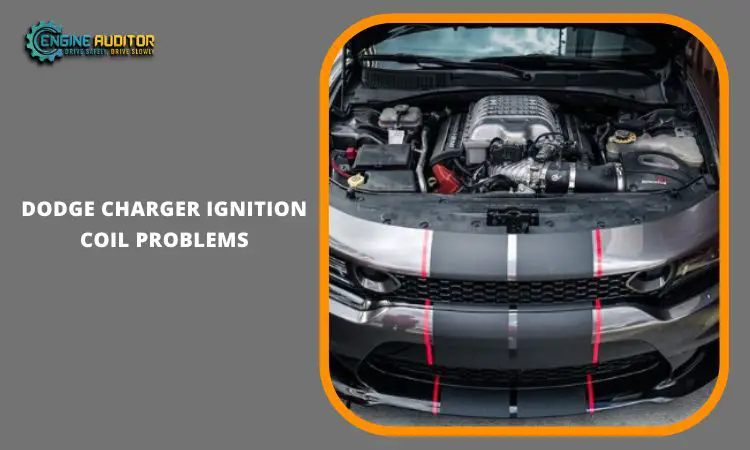The Enigma of the Unwilling 2012 Dodge Charger: Troubleshooting a Persistent Ignition Issue
The Enigma of the Unwilling 2012 Dodge Charger: Troubleshooting a Persistent Ignition Issue
Introduction
With enthusiasm, let’s navigate through the intriguing topic related to The Enigma of the Unwilling 2012 Dodge Charger: Troubleshooting a Persistent Ignition Issue. Let’s weave interesting information and offer fresh perspectives to the readers.
Table of Content

The Enigma of the Unwilling 2012 Dodge Charger: Troubleshooting a Persistent Ignition Issue
The 2012 Dodge Charger, a muscular and iconic American sedan, is known for its powerful engine and commanding presence. However, like any vehicle, it can experience unexpected issues, one of which can be a frustrating inability to turn off the ignition. This situation, while potentially alarming, is often a result of a specific electrical or mechanical malfunction, and understanding the potential causes can be the key to resolving the issue.
Common Culprits for a Persistent Ignition:
- Faulty Ignition Switch: The ignition switch is the primary component responsible for turning the engine on and off. Over time, wear and tear can cause it to malfunction, leading to a persistent ignition. This can manifest as a switch that fails to return to the "off" position, or a complete loss of functionality.
- Defective Ignition Cylinder: The ignition cylinder, where the key is inserted, houses the ignition switch. A damaged or worn-out cylinder can impede the proper operation of the switch, preventing the engine from shutting down.
- Electrical Short Circuit: A short circuit in the ignition system’s wiring can create an unintended pathway for electrical current, preventing the ignition from being turned off. This can be caused by damage to the wiring harness, a faulty connector, or corrosion.
- Malfunctioning Starter Relay: The starter relay is responsible for providing power to the starter motor, which in turn starts the engine. A malfunctioning relay can cause the starter to remain engaged even after the key is turned off.
- Faulty Engine Control Module (ECM): The ECM is the "brain" of the vehicle, managing various functions, including the ignition system. A faulty ECM can lead to a variety of issues, including a persistent ignition.
Troubleshooting Strategies:
- Visual Inspection: Start by visually inspecting the ignition switch and cylinder for any signs of damage, wear, or loose connections.
- Battery Check: A weak or faulty battery can sometimes lead to electrical malfunctions, including a persistent ignition. Check the battery terminals for corrosion and ensure the battery is properly charged.
- Fuse Check: Inspect the fuses related to the ignition system in the fuse box. A blown fuse can disrupt the electrical flow, causing the issue.
- Relay Check: If the starter relay is suspected, test its functionality by replacing it with a known good relay.
- Professional Diagnosis: If the issue persists, it is advisable to seek professional assistance from a qualified mechanic. They can use diagnostic tools to pinpoint the exact cause of the problem and recommend the necessary repairs.
FAQs: Understanding the Problem Further
Q: Is it safe to drive a 2012 Dodge Charger with a persistent ignition issue?
A: Driving a vehicle with a persistent ignition issue can be dangerous. The engine may continue to run even after the key is turned off, potentially leading to overheating, battery drain, or other complications. It is strongly recommended to avoid driving the vehicle until the issue is resolved.
Q: Can I try to fix the persistent ignition issue myself?
A: While some minor issues can be addressed with basic troubleshooting, more complex problems often require professional assistance. Attempting to fix the issue without proper knowledge and tools can potentially worsen the problem or cause further damage.
Q: What are the potential consequences of ignoring a persistent ignition issue?
A: Ignoring a persistent ignition issue can lead to several problems, including:
- Battery drain: The engine running continuously will drain the battery, eventually rendering the vehicle inoperable.
- Overheating: The engine running without the cooling system being engaged can lead to overheating, potentially causing significant damage.
- Safety hazards: A vehicle with a persistent ignition issue may be unsafe to drive, as the engine could continue to run unexpectedly.
Tips for Preventing Future Ignition Issues:
- Regular Maintenance: Ensure regular maintenance, including oil changes, fluid checks, and inspections of the ignition system, to prevent potential problems.
- Key Care: Avoid using worn-out or damaged keys, as they can contribute to ignition cylinder wear.
- Environmental Protection: Protect the vehicle from extreme temperatures and harsh weather conditions, as they can accelerate wear and tear on electrical components.
Conclusion:
A persistent ignition issue in a 2012 Dodge Charger can be a frustrating and potentially dangerous situation. However, by understanding the common causes and troubleshooting strategies, drivers can effectively identify and address the problem. If the issue persists, seeking professional assistance is crucial to ensure the safety and reliability of the vehicle. By addressing the issue promptly and implementing preventative measures, drivers can maintain the iconic performance and reliability of their 2012 Dodge Charger for years to come.








Closure
Thus, we hope this article has provided valuable insights into The Enigma of the Unwilling 2012 Dodge Charger: Troubleshooting a Persistent Ignition Issue. We appreciate your attention to our article. See you in our next article!